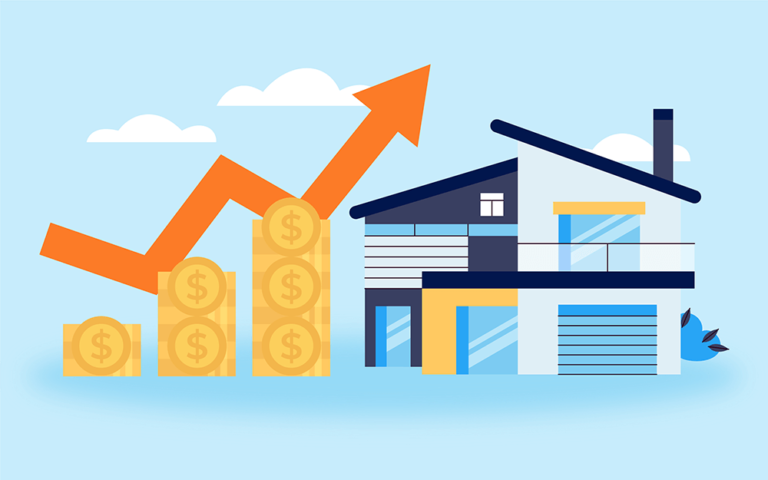ARM Versus Fixed-Rate Mortgages
In this blog, we will cover and compare ARM versus Fixed-Rate Mortgages when buying and refinancing a home. Most mortgage loan programs, whether it is FHA-insured mortgage loans or conventional mortgage loan programs offer adjustable rate mortgages and fixed-rate mortgages. There are pros and cons of ARM versus fixed-rate mortgages.
Is it Better to Get an ARM or Fixed-Rate Mortgage?
There are advantages and disadvantages of these types of programs depending on the mortgage loan borrower and their needs. Factors like how long a homeowner is intending on staying in the home are important in choosing an ARM versus fixed-rate mortgages. Also, how often the homeowner is intending in refinancing plays a vital factor in choosing ARM versus fixed-rate mortgages.
What Are Fixed-Rate Mortgages?
Fixed-rate mortgages are by far the most popular mortgage loan program most home buyers and refinance mortgage loan borrowers choose.
Fixed-rate mortgages are mortgage loans that have fixed rates for the term and life of the mortgage loan.
For example, a 30-year fixed rate mortgage loan with a starter mortgage rate of 4.25% has a 4.25% mortgage rate for the life of the 30-year mortgage loan. Whether interests skyrocket or plummet, it does not affect the mortgage loan borrower. They are secured with 4.25%.
Why ARM Is Better Than a 30-Year Fixed-Rate Mortgage
If the interest rates plummet to 2.75%, the homeowner can choose to refinance their current 4.25% mortgage rate loan to a new 2.75% mortgage rate mortgage loan. There are several types of fixed-rate mortgages. 30-year fixed-rate mortgages, 25-year fixed-rate mortgages, 20-year fixed-rate mortgages, 15-year fixed-rate mortgages, and 10-year fixed-rate mortgages.
How Does a 30-Year Fixed-Rate Mortgage Work?
Will all fixed-rate mortgages, once the term of the mortgage loan is up, the mortgage loan has been paid in full. Monthly payments on fixed rate mortgage loans, the monthly payments are inversely proportionate to the term of the mortgage loan. The longer the term of the mortgage loan, the lower its monthly mortgage payment is.
Mortgage Payments on ARM Versus Fixed-Rate Mortgages
The shorter the term of the mortgage loan, the higher its monthly mortgage payment is because, with the shorter term mortgage loan, the homeowner is repaying the mortgage lender the balance of the loan over a shorter period of time.
Shorter-term fixed-rate mortgages normally have lower interest rates because the mortgage lender has a shorter-term liability on mortgage rates.
Also, with shorter-term mortgage loans, you will save thousands of dollars in interest because you are paying the balance of the mortgage loan in a shorter period of time.
Learn more about the pros and cons of ARM versus fixed-rate mortgages
ARM Versus Fixed-Rate Mortgages
Adjustable rate mortgages are also referred to as ARM. Adjustable rate mortgages, ARM, differ from fixed-rate mortgages where the interest rates can change over the term of the mortgage loan. One great advantage of adjustable rate mortgages versus fixed-rate mortgages is that the interest rates of adjustable rate mortgages are substantially lower than fixed-rate mortgages.
Mortgage Rates on ARM Versus Fixed-Rate Mortgages
The reason why adjustable rate mortgage interest rates are much lower is that the mortgage lender is not obligated to guarantee a certain interest rate for the life of the mortgage loan. Mortgage lenders only have to guarantee a certain interest rate for the fixed rate period and after the fixed rate period is over, then the new interest rates adjust based on the index rate. This reduces the risk factor for the mortgage lender.
How Do Adjustable Rate Mortgages Work?
With adjustable rate mortgages, the mortgage interest rates are fixed for a certain period of time and after that period is over, the mortgage interest rates adjust every year for the term of the mortgage loan, and the new adjustment is based on the index, which changes depending on the type of index, plus the margin, which is constant for the term of the loan. For example, say that you get a 5/1 ARM with a starter rate of 3.0%, and a margin of 3%. based on the COST MATURITY TREASURIES ( CMT, one-year treasuries ).
Why ARM Versus Fixed-Rate Mortgages Is Better?
With this adjustable rate mortgage loan program, your interest rate will be 3.0% for the first five years of your mortgage loan. After the fifth year, your new mortgage interest rate will adjust. If the CMT, index, is 2.0%, your new rate will be the index plus the margin, 2.0% index plus the 3.0% margin, or 5%. Say on year number 7, the INDEX drops to 1.0%, then your new interest rate will be the 1.0% index plus the 3.0% margin or 4%. Your interest rate will adjust every year until the term of the loan.
ARM Versus Fixed-Rate Mortgages: Which Should I Choose?
Depending on your long-term goals, adjustable rate mortgages may or may not be the best choice for you. If you plan on purchasing a home and living there for the long term, then a fixed-rate mortgage may be the best option for you since you have security with the fixed-rate mortgage rate.
Talk to a Loan Officer to help you choose the best option for you.
The Benefit of ARM Versus Fixed-Rate Mortgages For First-Time Homebuyers
If you are a first-time home buyer and are planning in moving in the next five years or so, then you can greatly benefit by choosing an adjustable-rate mortgage loan program versus a fixed-rate mortgage loan and taking advantage of the lower interest rate. If you are planning on purchasing with an FHA loan because you may have bad credit or higher debt-to-income ratios and are planning on refinancing your FHA loan to a conventional loan in the next year or two to avoid the costly FHA mortgage insurance premium, you may want to choose an adjustable-rate mortgage versus a fixed rate mortgage. ARMs are available for both manual underwriting and automated underwriting system-approved files.
Frequently Asked Questions (FAQs)
- What is an ARM mortgage?
An Adjustable Rate Mortgage (ARM) is a home loan whose interest rate fluctuates periodically based on market conditions. - What is a fixed-rate mortgage?
A Fixed-Rate Mortgage is a home loan where the interest rate remains constant throughout the entire term of the loan. - How do ARM mortgages differ from fixed-rate mortgages?
ARM mortgages typically start with a lower initial interest rate that adjusts periodically, while fixed-rate mortgages have a constant interest rate for the entire loan term. - What are the benefits of an ARM mortgage?
ARM mortgages commonly feature lower introductory interest rates, potentially leading to lower initial monthly payments. They may also be advantageous if you the property prior to the rate adjustment taking effect. - What are the benefits of a fixed-rate mortgage?
Fixed-rate mortgages provide stability and predictability since the interest rate remains unchanged throughout the duration of the loan. This makes budgeting easier and protects against potential interest rate hikes in the future. - What are the risks associated with ARM mortgages?
The main risk with ARM mortgages is the potential for the interest rate to increase after the initial fixed period, leading to higher monthly payments. Borrowers should be prepared for fluctuations in their mortgage payments. - Are there any risks associated with fixed-rate mortgages?
The primary risk with fixed-rate mortgages is that borrowers may miss out on potential savings if interest rates decrease in the future. Additionally, fixed-rate mortgages typically have slightly higher initial interest rates than ARMs. - How do I decide between an ARM and a fixed-rate mortgage?
Your decision should be based on your financial situation, risk tolerance, and plans. If you prioritize stability and predictability, a fixed-rate mortgage may be best. An ARM might be suitable if you’re willing to accept some level of unpredictability and seek to benefit from lower initial rates. Obtaining advice from a financial advisor can also be invaluable in making a well-informed decision.
If you have other questions about ARM Versus Fixed-Rate Mortgages, you can contact us at Gustan Cho Associates by calling 800-900-8569 or text us for a faster response. You can also email us at alex@gustancho.com. Our expert Loan Officers are available even during weekends and holidays!








